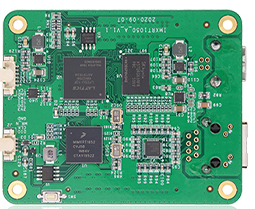There are several types of PCB printed circuit boards, each with its own advantages. FPC flexible circuit board is one of the most common circuit boards, and flexible FPC has many advantages in the application of electronic products. The following editor will introduce the advantages of FPC flexible circuit board for you?
Text label: flexible FPC, FPC circuit board
There are several types of PCB printed circuit boards, each with its own advantages. FPC flexible circuit board is one of the most common circuit boards, and flexible FPC has many advantages in the application of electronic products. The advantages of FPC flexible circuit board are introduced below?
1. Flexibility
The main advantage of PCB flexible circuit board is its flexibility and bending ability. Therefore, they can be manipulated in various ways to fit the edges, folds and creases. The flexibility of the circuit board also means that it is more reliable and durable than ordinary PCB, because it can reduce the impact of vibration, and there are few wiring on the circuit board.

Minimal wiring eliminates the need for interface connections such as solder joints, contact crimping and connectors.
2. Reduce weight and space
Compared with other solutions, flexible printed circuit boards can not only provide greater design freedom, but also provide better space utilization and weight efficiency. The flexible printed circuit board is thin and light, which can greatly reduce weight and space. For smaller devices, these flexible plates can be folded, crease and placed in a smaller area to miniaturize the device. This makes flexible circuit boards more suitable for small devices because they can be installed where rigid circuit boards cannot be mounted.
3. Suitable for harsh environments
Flexible circuit boards can be made of various corrosion-resistant materials and can withstand harsh environments. These materials can be waterproof, shockproof, moisture-proof or even corrosion-resistant. Therefore, these flexible boards are widely used in military and medical applications due to their tough and durable qualities. The natural flexibility of the board can also better absorb shocks and shocks.
4. Better thermal management
The flexible circuit board is made of polyimide, which has excellent thermal stability and can withstand extremely high heat. This also means that the improved heat dissipation performance makes the board a better basis for surface mounting and is less likely to undergo thermal expansion and contraction. The flexible board can also dissipate heat faster than other solutions, thereby increasing its thermal efficiency.
5. Reduce costs
Flexible circuit boards can help reduce assembly costs in many ways. The polyimide material of the PCB is thin and light, which means that it requires less space. Less space requirement means final assembly packaging size and material cost requirements. Since the flexible board eliminates the need to route wires to solder joints and connectors, as the number of components required is reduced, assembly costs are further reduced. By reducing the number of components and wires on the board, testing and rework time can be reduced, thereby increasing productivity and efficiency.